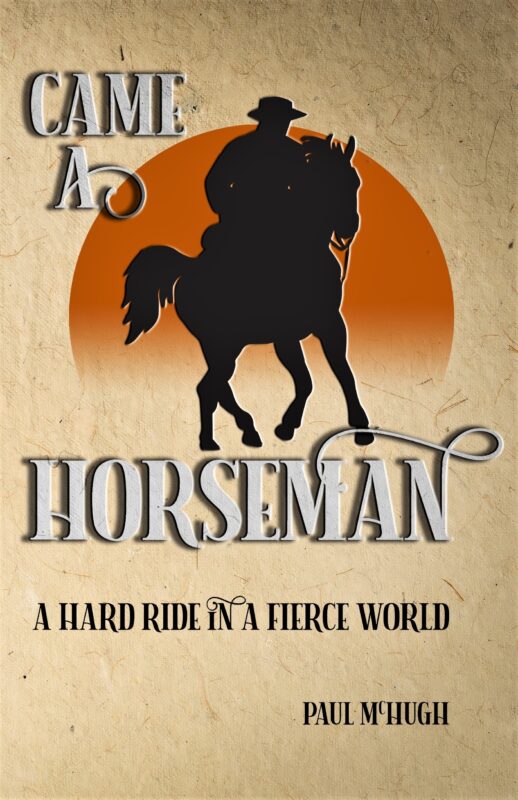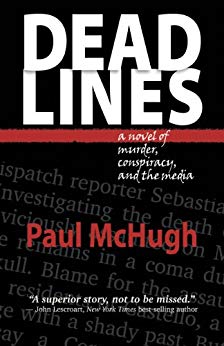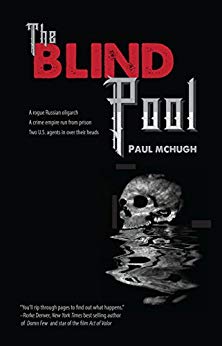San Francisco Chronicle columnist Leah Garchik in conversation with Paul McHugh at the City’s famed Green Apple Bookstore

Maybe you’ve heard a bon mot like this: “The secret to public speaking is sincerity. Once you can fake that, the rest is easy.”

The joke is an enduring meme, one batted through the decades like a shuttlecock. Its original service is assigned to a broad array of racketeers who range from Groucho Marx to French writer Jean Giraudoux. And no, you need not have an “x” in your name to win attribution. Even comedian George Burns comes in for his share of blame.
Its wording morphs – as with most memes – depending on the supposed speaker and the targeted topic. For this column, I’ve adapted it to the art of public presentation. Here, a key component should indeed be sincerity. And yes, it can be faked to some degree. If it couldn’t be faked at all, plenty of political careers would spiral down in flames.
However, as the Marvin Gaye lyric has it, “Ain’t nothin’ like the real thing, baby.”
Convert an Introvert

Every art is assumed to hold some secrets. Public speaking’s no different. Writers might feel an especially sharp urge to probe its hidden ways. Vaunting one’s self in the marketplace seems a practice quite alien and apart from a writer’s principal activity. To write is to shut yourself up within a cell rendered as solitary and peaceful as possible. Confined in such a monastic setting, you then proceed to cogitate and juggle language all by your lonesome, and for seemingly endless hours.
In short: our craft appears custom-made for introverts.
How bizarre then, if our isolated craftsman is next forced to emerge from his or her lair to engage in vigorous self-promo within a sprawling, jostling marketplace of stories and ideas. Heigh-ho, and presto change-o! You’re now an extrovert.
“But, hey. What if I just hung out at home and wrote a great play called The Mousetrap? Well, wouldn’t the literate world then yearn to beat a path to my door?”

Nope. You’d have to spend a few decades turning yourself into Agatha Christie, first.
When I offer a writing seminar, I make sure to point out to would-be professional scribblers that they always and forever must focus on selling two products: their writing, and themselves. In the tumultuous typhoon that is current social media, you absolutely must heat up your brand, and then brandish that glowing thing. It’s the only process that lets you bob up to the surface of those grand currents of gab that slosh from horizon to horizon throughout our culture.

Media gatekeepers and facilitators who once upon a time would perform fine promotional feats for up-and-coming authors have mostly gone the way of the Great Auk. So, making the sale nowadays increasingly relies on you-know-who…
The Vanishing Sphinx
“If you feel too shy to sell yourself,” I tell workshop participants, “your choices are that you can either get over it or go do something else.” The elite artist who seeks to make a virtue of his own scarcity, who tiptoes behind a scrim in hopes that the publicists and journalists and reviewers shall give chase and try to suss out your sphinx-like allure – à la Thomas Pynchon or J. D. Salinger – is oh-so-20th-Century.

According to my watch, that reached its finale some 20 years ago.
It’s a paradox that the intense proliferation and democratization of modern digital media has taken us back to a far earlier formula for achieving and curating artistic success. “We’re all more-or-less in the position of medieval troubadours,” I say to students. “It’s not enough to hang out in your garret, composing good tunes. You’ve got to go down to the street, claim a corner, drum up a crowd, perform for them, then pass the hat.”
Of course, in the Covid Era, I’m speaking virtually.
There are many virtual formats and tools for conducting these baseline operations, Twitter, Facebook, TikTok, Instagram, Medium, LinkedIn, videocasts, blogging and so forth. (And sure, newsletters like this one!) But the oldest tool and one of the most basic of all remains the most important. Which is speaking in public. Whether it’s done via Zoom, or not.
The Autist as a Young Man
This might shock people who know me well now, but as a youth I felt morbidly, almost pathologically shy. I’d go so far as to say a psychologist might’ve found a snug berth for me somewhere on the autism spectrum. That doesn’t mean I couldn’t engage in a bout of showy bombast whenever circumstances looked opportune. However, for me, the circumstances rarely did. And besides, scarce irruptions like that hardly constitute a cure.

Finally, when I was in my 20s, I decided to grasp the nettle. Seize the bull by the tail, as W.C. Fields would put it. If my inability to socialize was going to hold me back in life, as it seemed likely it would, then I’d take a serious stab at licking the problem. I made a running leap, then took a headlong dive into community theater.

Fortunately, my community was the intimate coastal burg of Mendocino, and the local impresario was a diva named Linda Pack, a New York expat with theatrical experience, performance theories galore, and a touch of the dominatrix (a trait which I believe most good directors share). Under her tutelage, I learned to present myself on stage, reaching an apotheosis of sorts by singing the role of the pirate king in Gilbert & Sullivan’s Pirates of Penzance. I followed that up with a one-man show of Lord Buckley material.
Walking the Planks

At which point, I felt I was just starting to hit my public stride. The single biggest step came when I went mano a mano with the phenomenon of stage fright. I perceived the core of that particular terror: I wanted badly for the audience to approve of me. My self-worth hung in abeyance while I tried to get them to applaud. But hey, I thought, what if I flip that whole question around? Instead of hoping for an answer from them, what if I start off by giving the answer to them? I won’t worry about whether they love me or not; I’ll completely flood the zone by loving all of them first. Including my possible critics.
Bingo. Fear immediately subsided, while confidence grew. Even if I flubbed up, and an audience began to snicker at a few of my mistakes, well, at least they were laughing! And thus, I was still showing them a good time.
My next discovery was much like the first – it’s okay to show some vulnerability, in fact it’s highly valuable, because we all feel vulnerable to some degree. Thus, it’s a method of establishing kinship. Audiences trust imperfection much more than they do a shimmering, hard shell of apparent flawlessness.
The Pause that Retrenches

As I progressed, I learned the power of rhythm, and the potency of its key ingredient, which is silence. A big rookie mistake is to rush a performance, to feel that silence is your enemy, one which must be beaten back at all costs. However, the truth is much to the contrary! Aim a verbal fire hose at people, and you just force them to duck. On the other hand, skilled use of silence can underscore a point, give your audience a rest, and make them eager to hear what you’re about to say next. When you wrap an ear around the great speakers, especially the great Black preachers, you’ll hear people who have no problem at all with inserting dramatic pauses, even right smack in the center of a sentence.

A penultimate point I’d like to make here is that, if panic is contagious, so is confidence, so is comfort. The key component to any presentation is the “present” part of it. Present, as in you showing up for the event, warts and all. Present, as in you giving your audience a gift. Present, as in being fully in that moment, and inviting an audience to join you there.
So, the present doesn’t need to be tense. If an audience feels like you are welcoming them into a moment, if they see you’ve worked diligently on having something useful to say, they’ll award you that most precious of modern commodities: a measure of their attention. Don’t fling it away by failing to treat it with all due care and reverence. Whether you do that or don’t do it – or even if you try to pretend to do it – everyone can sooner or later see the differences and spot the fake. Often, they do it sooner.
When Theatrics Flop
Which, in a rather full circle, brings us back to sincerity.
A good actor can look as if he or she is crying. Great actors truly are crying – because they’re able to connect a scripted line to a memorable event in their own lives or imagine some dramatic turn, such as the death of a spouse or a child. In any case, it’s a visualization they use to summon an appropriate emotion from deep within. In contrast, lousy actors must have a make-up person trot up and dribble in eye drops and/or paint tracks of glycerin down their cheeks just before the director calls for Action.
How does this relate to public speaking? Well, see, it doesn’t. Because if you want to be an effective public speaker, you should NOT act. Not to the faintest degree, no matter how good you might consider yourself to be at acting.
Instead, first and foremost, simply and purely, one ought to strive to forge a connection with your listeners. For a public speaker, that’s the nub of the job, its vital essence.
Do that, and sincerity shall crop up of its own accord. And in this fashion, your chat will come to life.









